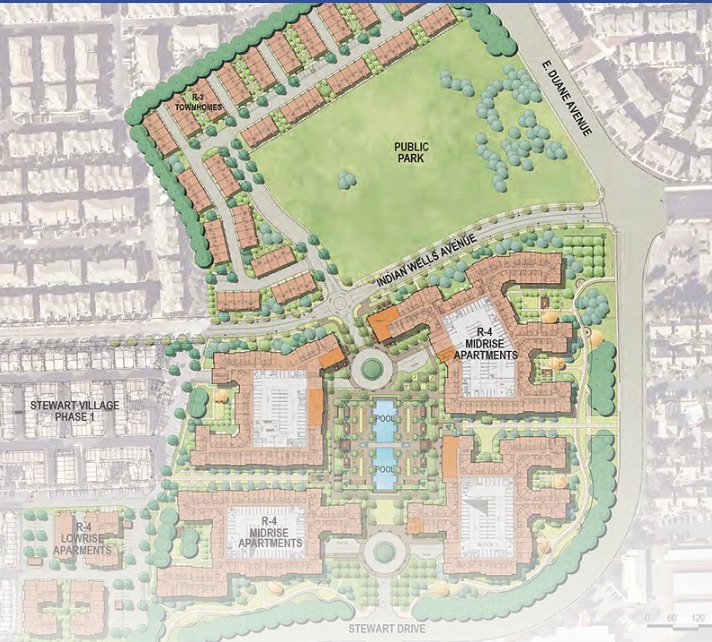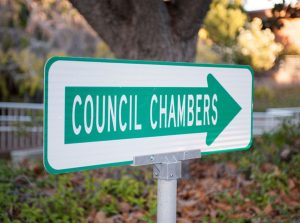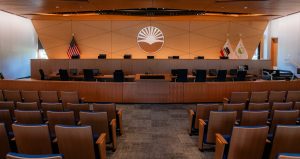In a California Environmental Quality Act (CEQA) lawsuit [sunnyvale ceqa 2019 complaint], the International Union of Laborers North America (ILUNA) Local 270 charges that the Environment Impact Report (EIR) for developer Irvine Company’s 1 AMD Place Sunnyvale redevelopment project neglected necessary studies and overlooked pertinent data.
But Irvine’s environmental analyst, Ascent Environmental, addressed ILUNA’s complaints during EIR reviews in 2018 and 2019, responding that the complaints rely on irrelevant data and don’t reflect the facts of the project and site.
The proposed development covers roughly 35 acres of formerly industrial land bordering Duane Avenue (1 AMD Place) and Stewart Drive (975 Stewart Dr.), and includes around 950 apartments in three to five-story buildings, about 100 townhouses, and a 6.5-acre public park.
ILUNA’s first complaint is that the EIR doesn’t evaluate levels of off-gassed formaldehyde in the residences, wrote the union’s attorney Michael Lozeau.
He cites analysis by industrial hygienist and mechanical engineer Francis Offermann that “future residents would be exposed to a cancer risk from formaldehyde of approximately 125 [parts] per million,” which “is more than 12 times … the Bay Area Air Quality Management District’s … threshold.” This is based on 2009 and 2018 studies.
In its response to Lozeau’s written comments to the EIR, Ascent Environmental said that the studies Offermann cites were of houses built before 2012 — prior to stricter 2014 and 2016 regulatory mandates.
As 1 AMD Place construction — which has yet to start — will conform to the California Air Resources Board’s current materials standards, Offermann’s studies “do not provide evidence that the project, which will be built in phases out to 2020, will have significant impacts from formaldehyde emissions,” Ascent wrote.
The plaintiffs’ second complaint is that the EIR underestimates numbers of “special status” bird species potentially affected by the development, citing analysis by wildlife biologist Shawn Smallwood.
Ascent’s response is that “additional special-status species listed …are not known to nest” near the site and would be unlikely to “due to a lack of suitable natural habitat.” Further, many of these species “are typically not considered ‘special-status’ under CEQA.”
The lawsuit further claims that the EIR fails to properly assess “birds colliding with the Project’s glass facades and other structures” and doesn’t discuss Sunnyvale’s Bird Safe Guidelines.
In its EIR response to Lozeau’s criticism, Ascent says the apartment buildings “would not … result in significant new hazards to birds.” Lozeau “overstates” suitable habitat and bird populations on the site, Ascent wrote, and doesn’t acknowledge existing conditions that already impact birds — building heights similar to other developments in the area and nearby airports.
Further, Ascent wrote, the buildings don’t include expansive glass areas, glass next to landscaping, glass skyways or free-standing glass walls, and incorporate City guidelines.
In his first letter to the City, Lozeau also said the EIR failed to properly assess construction air pollution, traffic, vehicle trips and the adverse biological impact of “hundreds of house cats.”
The lawsuit is Santa Clara County Case No.19CV348049. Sunnyvale documents are at sunnyvale.ca.gov/business/projects/amd.htm. No hearings are currently scheduled.












0 comments